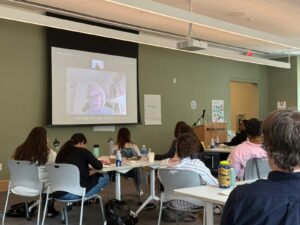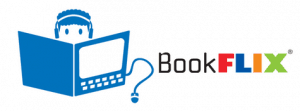calsfoundation@cals.org
A Love Letter to Community: Reflections from the Archives Leadership Institute
I had the honor of being one of twenty-five archivists selected to participate in the Archives Leadership Institute (ALI) hosted at the University of Virginia in Charlottesville June 8–15, 2025. Funded by the National Historical Publications and Records Commission, ALI brings together archival workers from across the country to reflect, learn, and grow as leaders in our field.

I applied in hopes of stepping outside of my work at the Butler Center for Arkansas Studies/Roberts Library at the Central Arkansas Library System, my life in Arkansas, and my personal contexts to connect with colleagues navigating similar challenges in their roles as memory workers. While “transformative” seems a trite way to describe the experience, it’s the only word that feels right. I was challenged, supported, and inspired in ways I couldn’t have predicted. I truly believe that what I gained over the course of the week will deeply shape how I approach the work we do at the Butler Center and the CALS Roberts Library in collaboration with the communities we serve.
Leading with Values
The week began with an exercise in identifying our personal values and exploring how those values manifest in our work. Traditionally, archivists are taught to approach our work with objectivity and neutrality. However, a values-based framework invites us to reflect more honestly on how our identities and beliefs influence how we engage with the histories and people around us.
For me, one core value that surfaced was authenticity. I’ve always strived to live authentically in every area of my life. But in trying to meet traditional expectations of neutrality, I realized I was often working in conflict with that value, holding back parts of myself and my perspective. Recognizing this tension gives me permission to show up more fully and intentionally in the work.
One quote from professor Brené Brown captured this realization perfectly:
“Living into our values means that we do more than profess our values—we practice them. We walk our talk—we are clear about what we believe and hold important, and we take care that our intentions, words, thoughts, and behaviors align with those beliefs.”
Radical Empathy in Archival Practice
Another key takeaway was the concept of radical empathy as a framework for more inclusive and equitable archival practice. Rooted in Black feminist theory, radical empathy prioritizes self-reflection, community engagement, and mutual empowerment. It calls us to slow down, listen deeply, and build archives that reflect the full complexity of the communities we serve.
Traditionally, archives have failed to represent wide swaths of community voices. At the CALS Butler Center, we are always working to expand representation, but this experience reminded me that the work is never complete. Radical empathy offers a powerful tool to guide us—one that can help us remain accountable, curious, and compassionate in how we build collections, design programs, and engage with the public.
It also aligns directly with CALS’s new 2025–2030 Strategic Plan, which centers community connection and inclusivity:
Our Mission:
We connect people. We nurture potential. We grow community. We are CALS.
Our Vision:
A community where people feel heard, supported, and connected.
Our Core Values:
We provide access to all. We believe in the freedom to know. We respect diverse perspectives. We cultivate collaboration and innovation. We provide open and respectful spaces. We carefully steward shared resources. We offer exceptional service.
Sustainable Archives through Community

The ALI leadership team, which was composed of past participants, shared powerful examples of how community-centered collaboration transformed their practices and relationships. These case studies underscored an important truth: sustainable archives are built on relationships. Mutual care, shared goals, and ongoing dialogue with the creators and stewards of memory are what allow archival work to be truly meaningful and lasting.
This was a deeply affirming message for me as the community outreach archivist at the Butler Center/Roberts Library. The work of building trust, fostering representation, and practicing care alongside communities is not always fast or easy—but it is essential.
An Invitation
My week at ALI renewed my commitment to community-informed, collaborative archival work. If you’re someone who engages with our collections or programs and feels seen, thank you for living in community with us. And if you’re someone who hasn’t yet felt represented, I invite you to reach out. We want to connect and build sustainable relationships. And we want to ensure that your stories are not only preserved, but honored.
You can reach me by email at: dtafsordeh[@]cals.org and by phone at 501.320.5726.
Let’s keep writing this love letter to community—together.
By Danielle Afsordeh, community outreach archivist and programs coordinator for the CALS Butler Center for Arkansas Studies/Roberts Library




